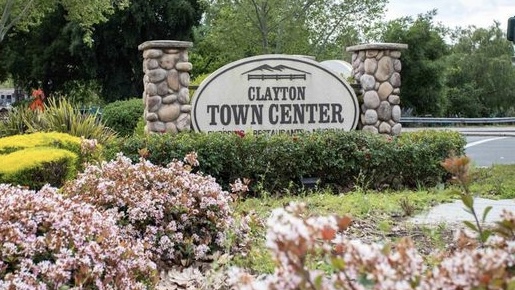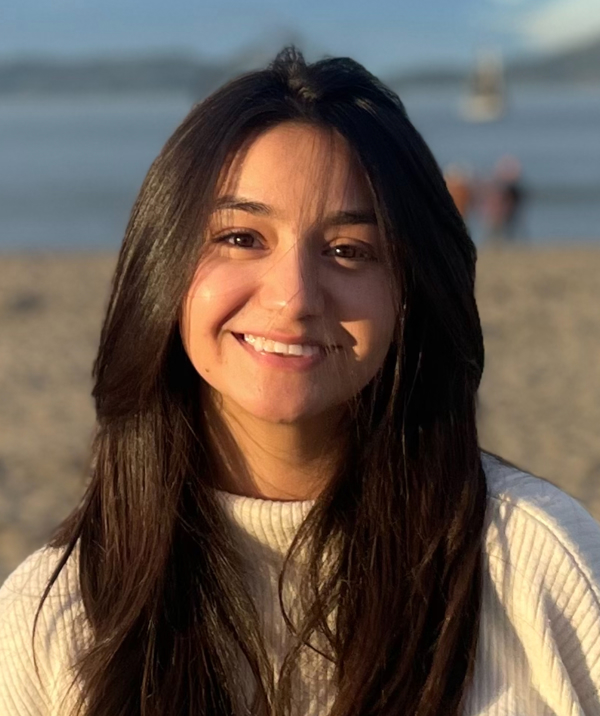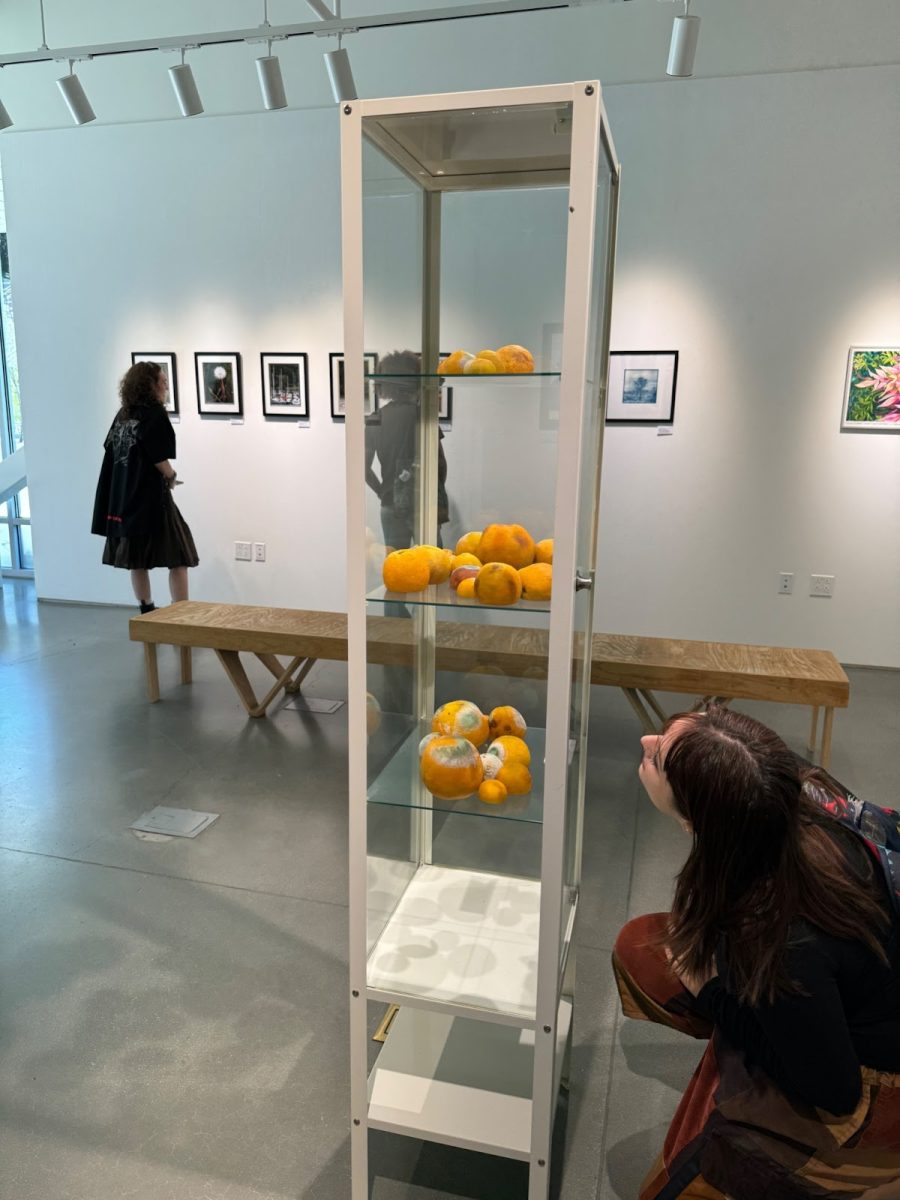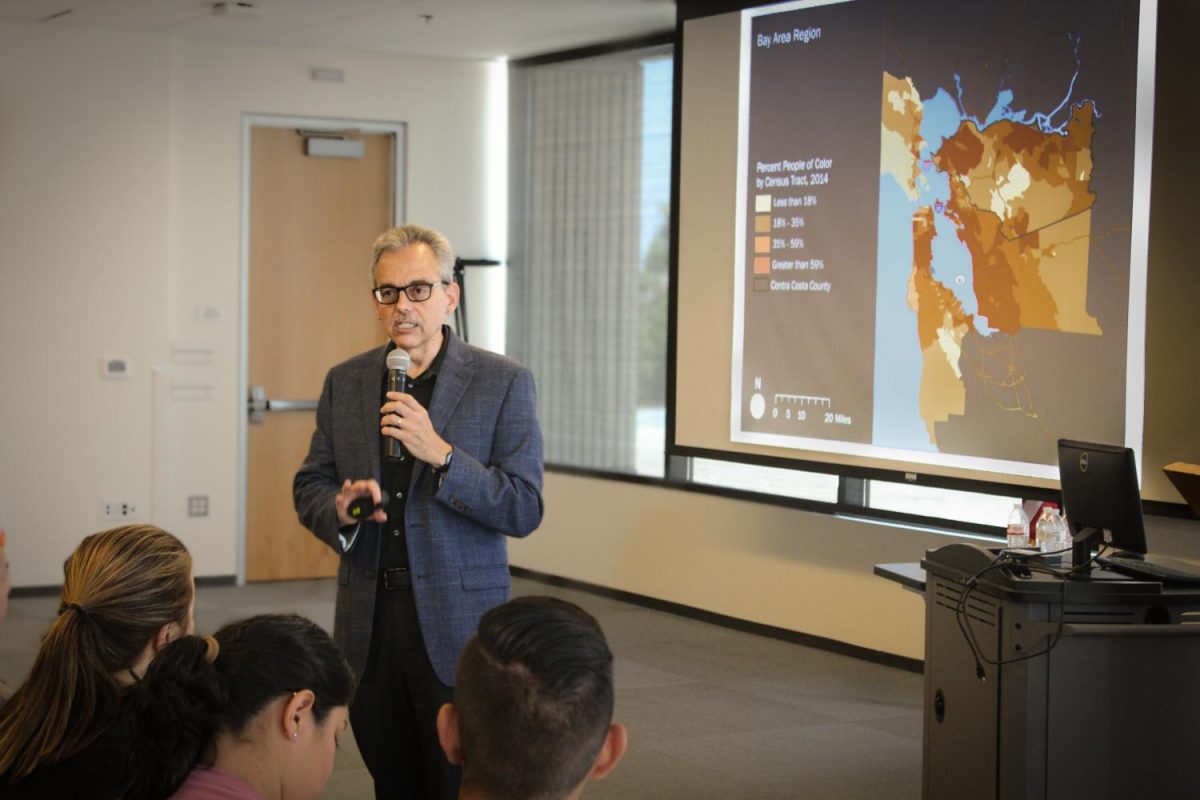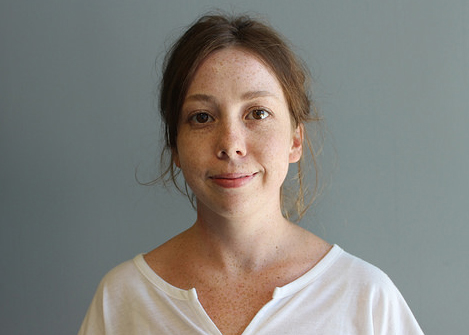DVC’s diversity a boon for its students
Dr. Manuel Pastor, a DVC equity series speaker, addresses students on Thursday, Sept 14th at the DVC campus about diversity and the role it will play in our future.
September 28, 2017
For those of us who want to lead the state and country in things like business, education or social justice, it is very important to understand how to bridge cultural gaps because “the populations that you’re going to be increasingly dealing with are much more diverse than in the past,” said DVC Equity Speaker Dr. Manuel Pastor, professor of sociology and American studies and ethnicity at the University of Southern California.
Diablo Valley College students therefore find themselves in something of a “sweet spot” when it comes to dealing with the economic and equity issues facing California and the nation as a whole. As Pastor explained, students here will likely be better equipped for the future largely because the California Community College system is more diverse than other public and private universities.
According to the Bureau of the Census projections, the majority of the U.S. population will be people of color by 2044, with Latino and Asian populations being the fastest growing. And Pastor said that by 2035, the majority of the job force will be made up of people of color.
These changes are not necessarily the result of increased immigration. A study done by the University of New Hampshire’s Carsey School of Public Policy shows that it’s more so the effect of a thinning baby boomer population, and declining fertility rates among white people as compared to people of color.
However, Pastor said, “California is basically America in fast-forward.” Based on information from the California Research Bureau, our state already went through this demographic transformation between 1980 and 2000.
DVC has followed suit, with minority students making up 63% of the student body as stated in the 2016 quick facts on the DVC website.
Similarly, much of what we are seeing play out on a national level right now, happened in California in the mid 1990’s, at the height of the this demographic shift. Pastor explains that California saw an increase in income inequality, divestments in education for public schools and the restriction of social services for immigrants, resulting in several years of economic turmoil and rocky race relations.
“For some of us, the sense of America diversifying is a great thrill, this means more Korean taco trucks,” he said. But he noted that for others, it creates the uncomfortable sense of the America–as we knew it–disappearing, with a lot of resulting policy reflecting that sentiment.
Pastor also pointed out that conventional economic wisdom says that there is a trade off between equity and efficiency.
There is, however, reason to be optimistic he explained. New evidence from the Brookings Institution shows that regions which work toward equity have stronger and more sustainable job growth for everyone.
Drawing on this notion, California has since changed its tune in an effort to be more economically viable and equitable by, among other things, increasing investments in public education.
California is set to pave the way for the rest of the country in dealing with these issues. And with renewed access to career-oriented education and an aptitude for crossing diverse social lines, Pastor believes that California Community College students, like those at DVC, are in an advantageous and competitive position to navigate our increasingly complex and rapidly changing society.



